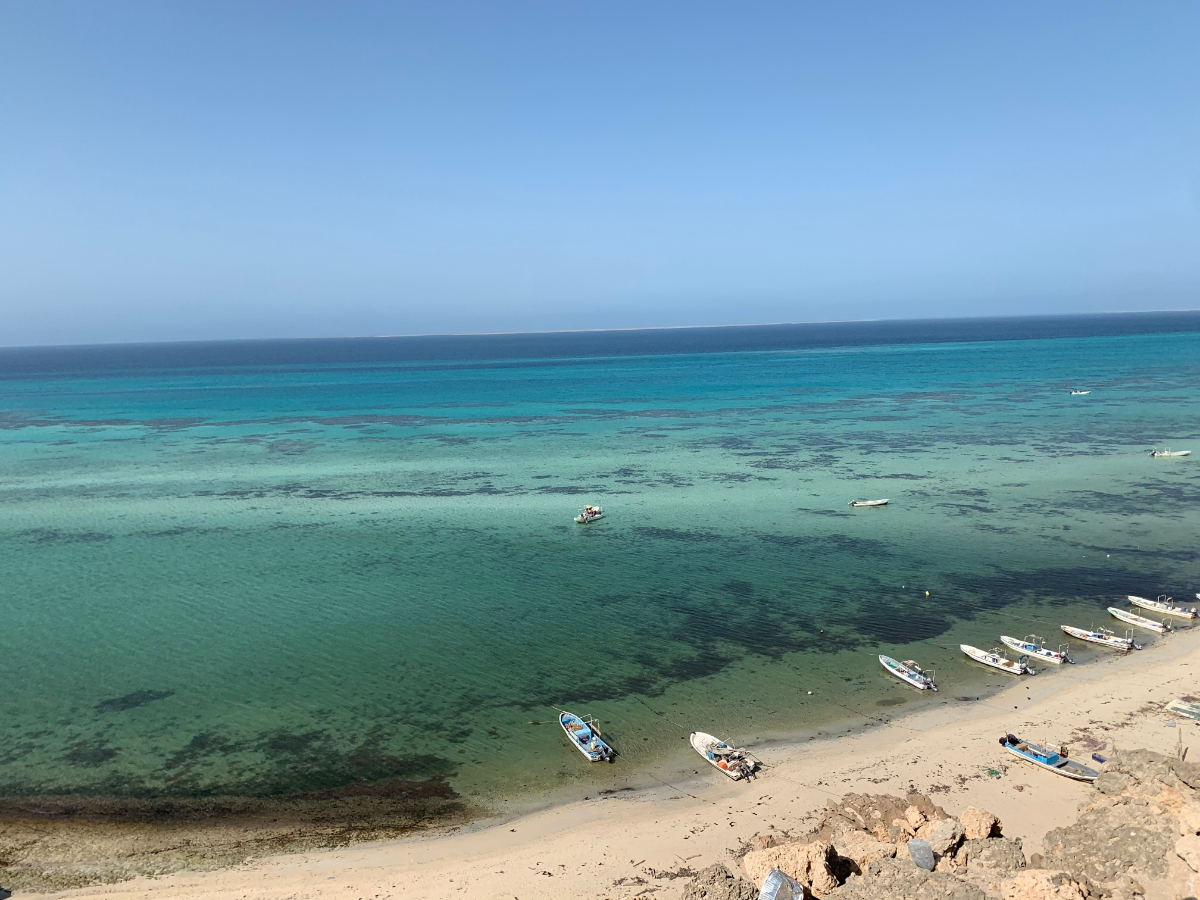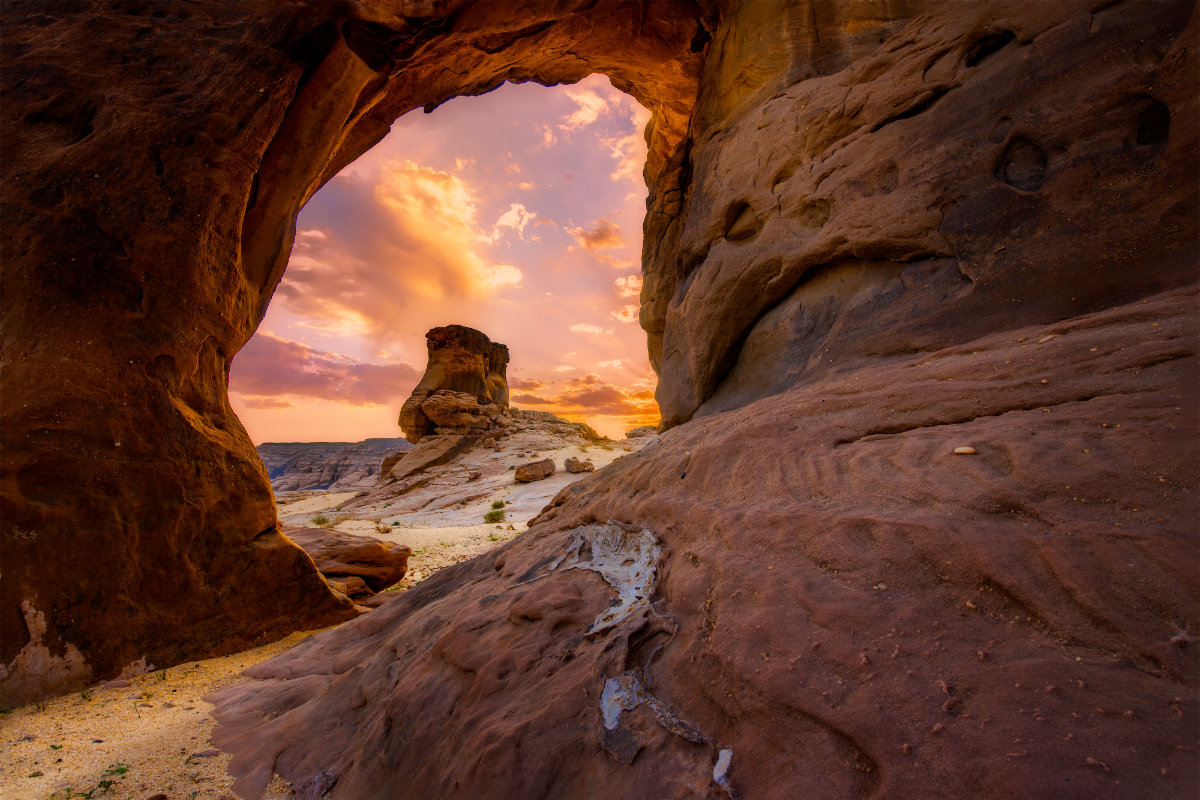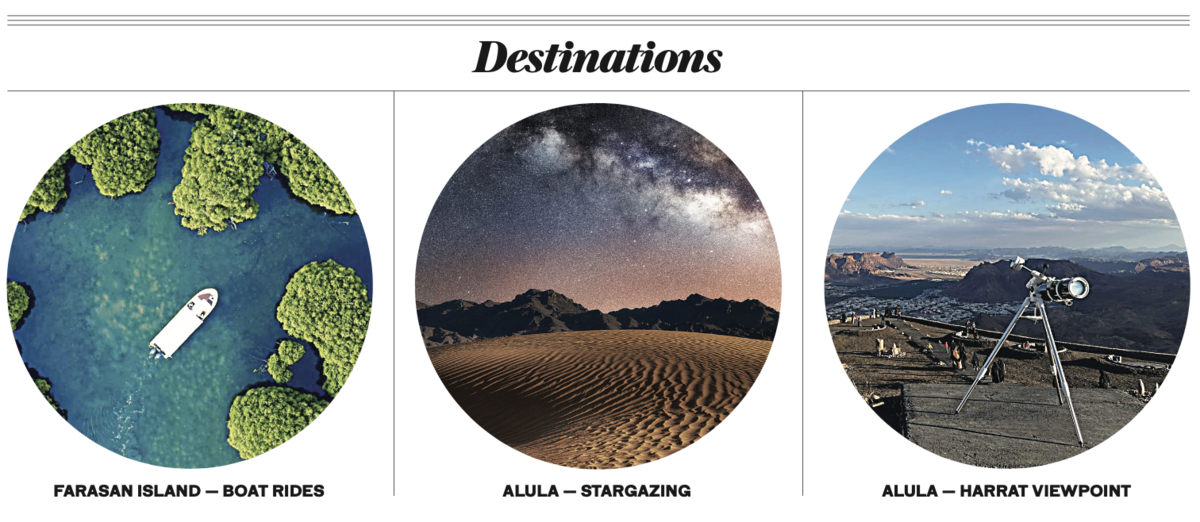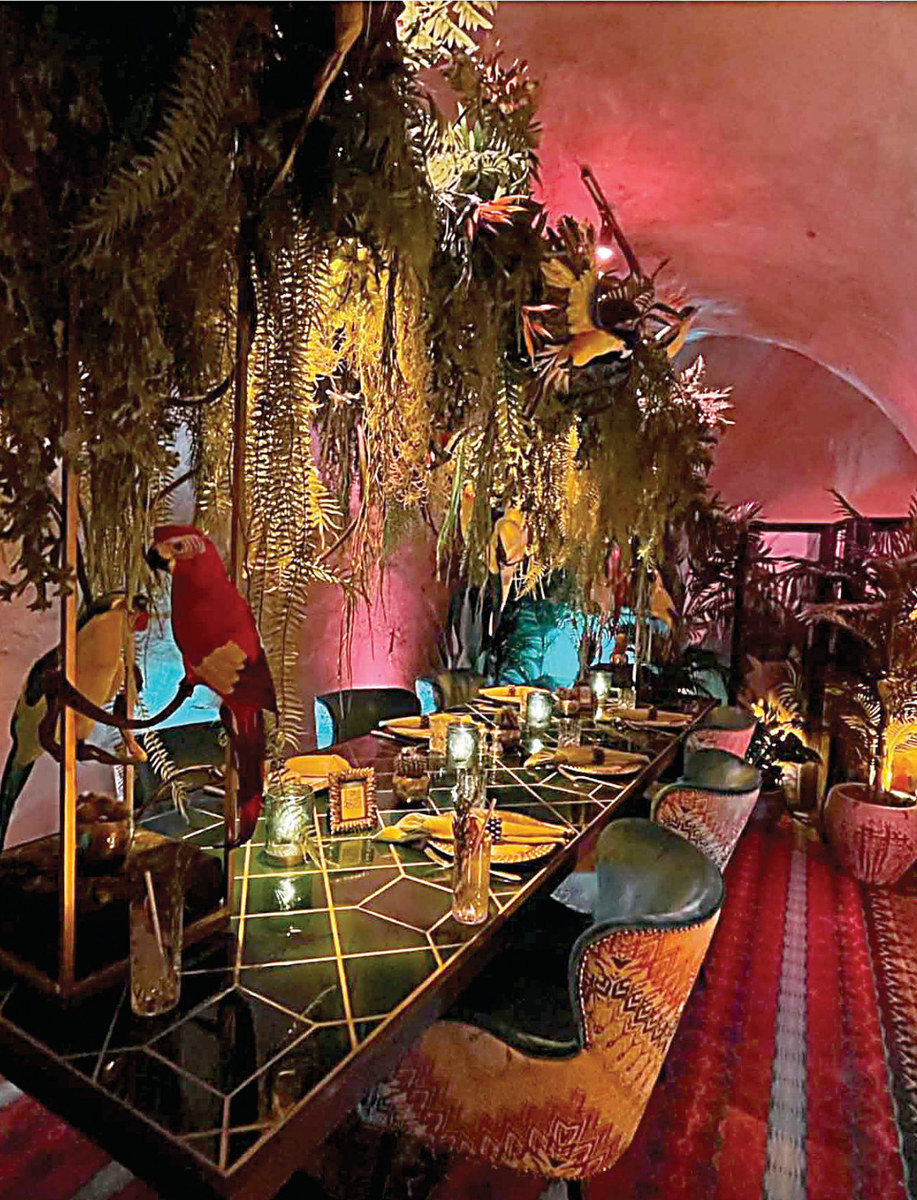JEDDAH: Valentine’s Day, the annual celebration of romance and love, is upon us once more, bringing with it the usual flurry of greetings cards, dinner reservations, whopping great boxes of chocolates and lavish bouquets of roses.
Once firmly off-limits in Saudi Arabia and regarded as out of sync with Gulf Arab values, the holiday is nowadays celebrated in the Kingdom with romantic gestures, an abundance of gift options, and commercial travel offerings designed to make the occasion memorable.
From fine-dining experiences at world-class restaurants to staycations and scenic getaways in the Arabian wilderness, the Kingdom now offers courting couples a huge selection of romantic adventures, right on their doorstep.

Farasan Island in Saudi Arabia's southwestern province of Jazan. (Shutterstock)
While many might consider Paris, the original “city of love,” to be the obvious destination for a last-minute Valentine’s excursion, Saudi Arabia offers its own romantic retreats, where couples can escape the hustle and bustle of the big cities and focus entirely on one another.
Take the Farasan Islands for instance. With more than 170 islands spread across the southwestern Red Sea, it is a playground for nature lovers looking for a long weekend away without having to leave the region.

An ancient mosque stands in an old village in Farasan islands. (Shutterstock)
The bright blue waters are complemented by pristine, virgin beaches, mangrove forests, spectacular coral reefs, and an abundance of wildlife. Described as “habitat hot spots,” the islands were the first place in the Kingdom to be listed as a protected biosphere reserve.
Visitors who take advantage of the opportunity to go diving in the crystal-clear waters can find dolphins playing in the surf, spot flocks of pink flamingos paddling in sparkling shallows, and perhaps even catch a glimpse of giant yet serene dugongs drifting between the mangroves.
The islands are not entirely untouched by humans. The ruins of an old Ottoman fortress, stone remnants resembling Roman columns, and old, white-washed houses built in the unique local style have, like all good relationships, stood the test of time.

However, the islands remain largely unscathed by modern development and so hotel options are limited. But what better way to truly enjoy the natural beauty of the region, and the company of your loved one, than by camping out on an unspoiled beach under a blanket of stars.
If a cooler climate is more your thing, then heading north to the majestic valley and mountains of AlUla might hold greater appeal. Indeed, this is the land of the timeless tale of the forbidden love of Jamil and Buthainah.

Extraordinary sandstone landscapes host extraordinary cultural and natural heritage, surrounded with beautiful unique rock formation where you can find only in AlUla. (Shutterstock)
Since the region opened up to the world in 2018, accommodation options have been springing up throughout AlUla, sensitively designed to blend into the natural surroundings.
From the Harrat Viewpoint, visitors can survey the wide vistas of the region’s old farming communities and watch a gorgeous sunset over the old town of AlUla. For more active and adventurous travelers, the attractions include zip-lining, scenic walks on the desert sand, and a chance to explore the ancient landmarks of the Dedan and Lihyan civilizations.

Caravan sites and designated camping grounds offer visitors the chance to experience an atmospheric night under the stars. If you prefer your home comforts, AlUla also has luxury hotel options and exceptional culinary experiences at Annabel’s, Al-Mahkar, Circolo and Myazu.
For those who have left it too late to book a weekend trip, there are plenty of Saudi gift services available at the click of a button. Flowers, chocolates and balloons, for example, are available for delivery using smartphone apps such as Floward, Joi Gifts, Little Flora, Arabian Flora, and Ferns N Petals. Meanwhile, custom-made gifts can be ordered through courier apps such as The Chefs, Marsool, and To You.

Inside Annabel's Restaurant in AlUla. (Supplied)
Then of course there is the traditional option of a romantic meal for two. One top recommendation is the Greek fare on offer at Opa, the newest restaurant to open at Riyadh Oasis in the heart of the Nafud Desert.
Meanwhile, serving locations from London to Jeddah, Novikov offers some of the region’s best Asian cuisine, prepared in an open kitchen that allows diners to watch the team of talented chefs create exquisite dishes before their very eyes.
With so many Valentine’s Day options available for smitten Saudis to make that grand romantic gesture, Cupid’s arrow surely cannot fail to hit the mark.






























